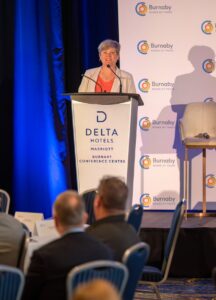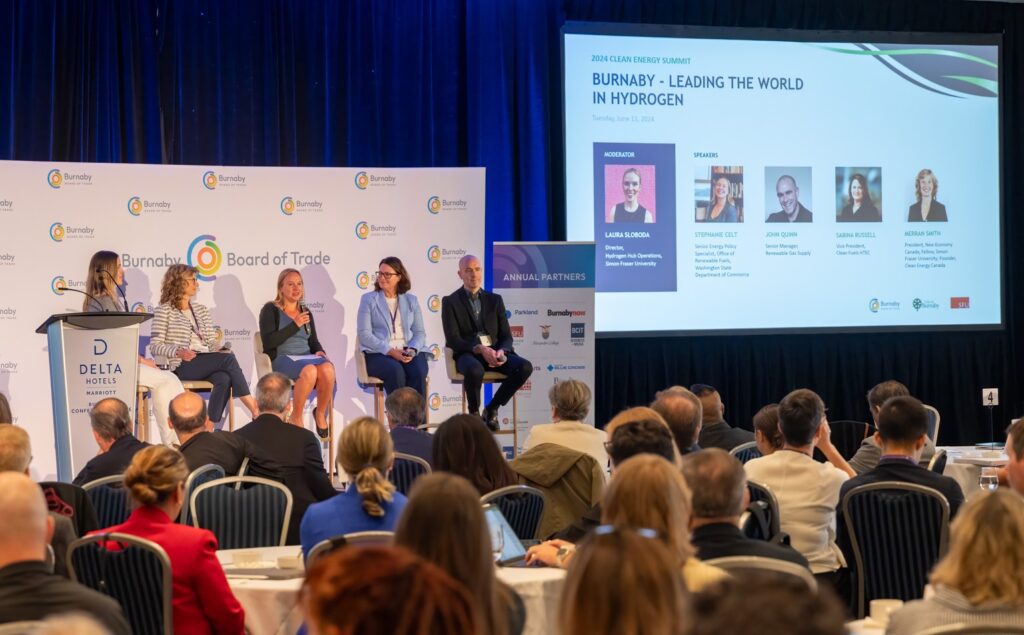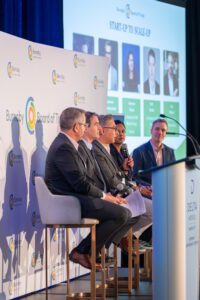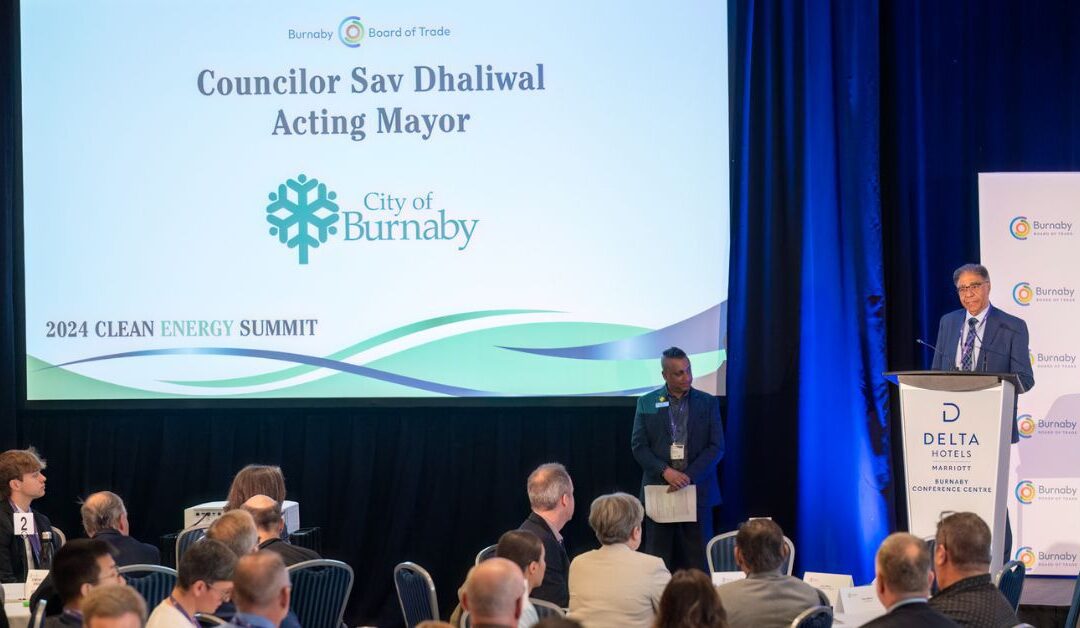By Ross Thrasher
GTEC Communications and Media Team

Josie Osborne
Josie Osborne, the BC Minister of Energy, Mines & Low Carbon Innovation, kicked off the proceedings by highlighting the government’s low-carbon fuel standard, its support for the HTEC hydrogen project (more on this below), and its billions of capital investment in clean-energy partnerships.
Hydrogen as an emerging non-carbon energy source was the topic of the morning panel discussion. Moderated by the Director of the SFU Hydrogen Hub, this panel included three representatives of entities working in the hydrogen marketplace, plus an energy policy specialist from the Washington State government. Among the insights:
- Investment in renewables (wind, solar etc.) has taken off as costs decline.
- The transition to EVs will accelerate as battery technology improves.
- In that vein, HTEC is developing hydrogen as a transportation fuel for heavy-duty vehicles, using liquefaction and hydrolysis techniques.
- Air-quality and noise-reduction benefits will accrue as the trucking industry converts to hydrogen fuels.
- Washington’s target for hydrogen’s contribution to the state’s alternative fuels is 27% by 2050.
- Fortis BC, the natural gas utility, is experimenting with hydrogen extraction from water and hydrocarbons, and is researching the conversion of its pipeline infrastructure to enable hydrogen transmission.
- Outstanding issues vis-a-vis hydrogen adoption include energy use in the production process; hydrogen storage (underground caverns? mega-batteries?); and the need for public education to promote this emerging technology.

Hydrogen Panel Discussion
After lunch, an executive from BC Hydro outlined the utility’s forward planning to address the anticipated future acceleration in the province’s electricity demand. The Site C dam, which should be operational in 2025, will add 8% to Hydro’s capacity (= 500K homes). The utility intends to provide 2000 EV charge points province-wide by 2030.
Another speaker discussed the Pacific NorthWest Economic Region (PNWER) Foundation, a statutory public/private nonprofit created in 1991 by the U.S. states of Alaska, Idaho, Oregon, Montana, and Washington and five Canadian jurisdictions —Alberta, British Columbia, Saskatchewan, the Northwest Territories and the Yukon. PNWER will stage its annual summit in Whistler BC in July, addressing environmental and energy issues.

From Start-Up to Scale-Up Panel
The final panel of the day addressed a Burnaby-specific subject, the city’s District Energy Utility Project, whose aim is to generate clean energy from waste processes. The project is targeting the space heating and domestic hot water needs of buildings in rapidly-growing South Burnaby. The first five-year phase should reduce CO2 by 13,400 tons annually.
The Burnaby Board of Trade delivered an informative and inspiring day for those who attended the second annual Clean Energy Summit.
Photo Credit: All of the images used in this article were taken by Chris Wright
Read articles on climate change, sustainability, education, and more from GTEC’s Communication & Media (formally GTEC Blog)!
GTEC’s Climate Response Centre will be Canada’s first centre that combines a source of relevant and accessible educational and community development programming, and a centre of evolving community-based expertise about responding to climate change.

